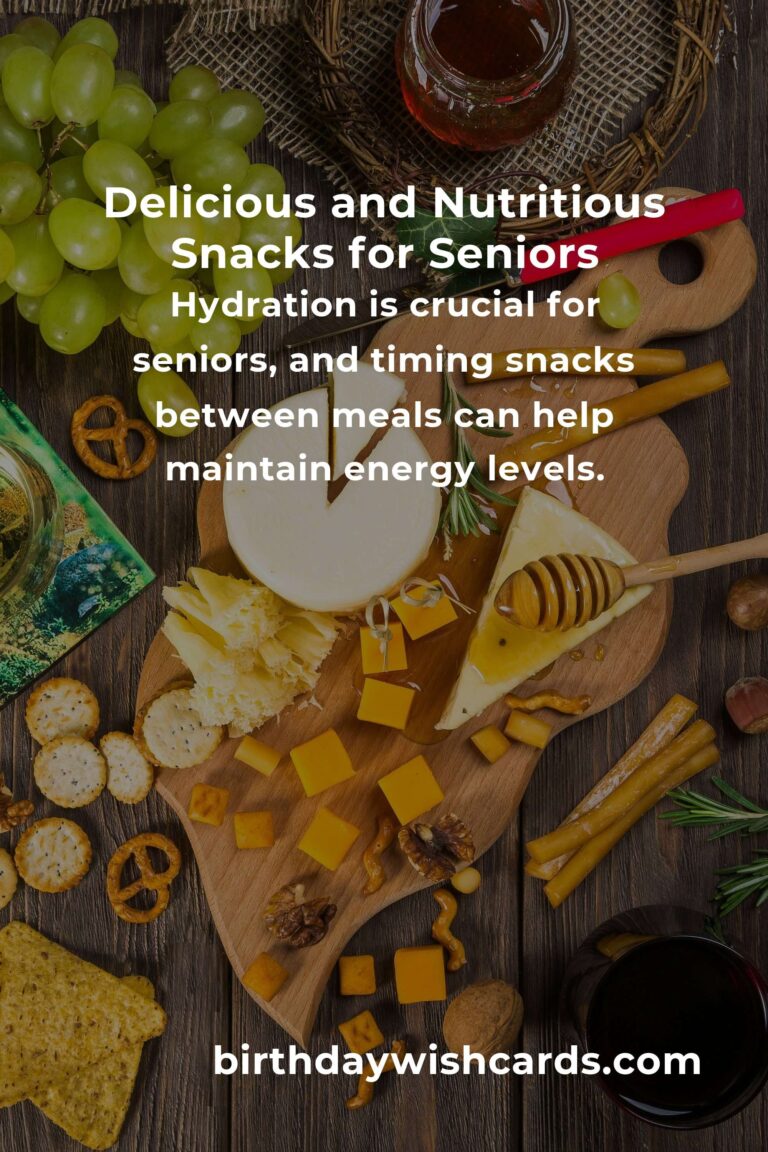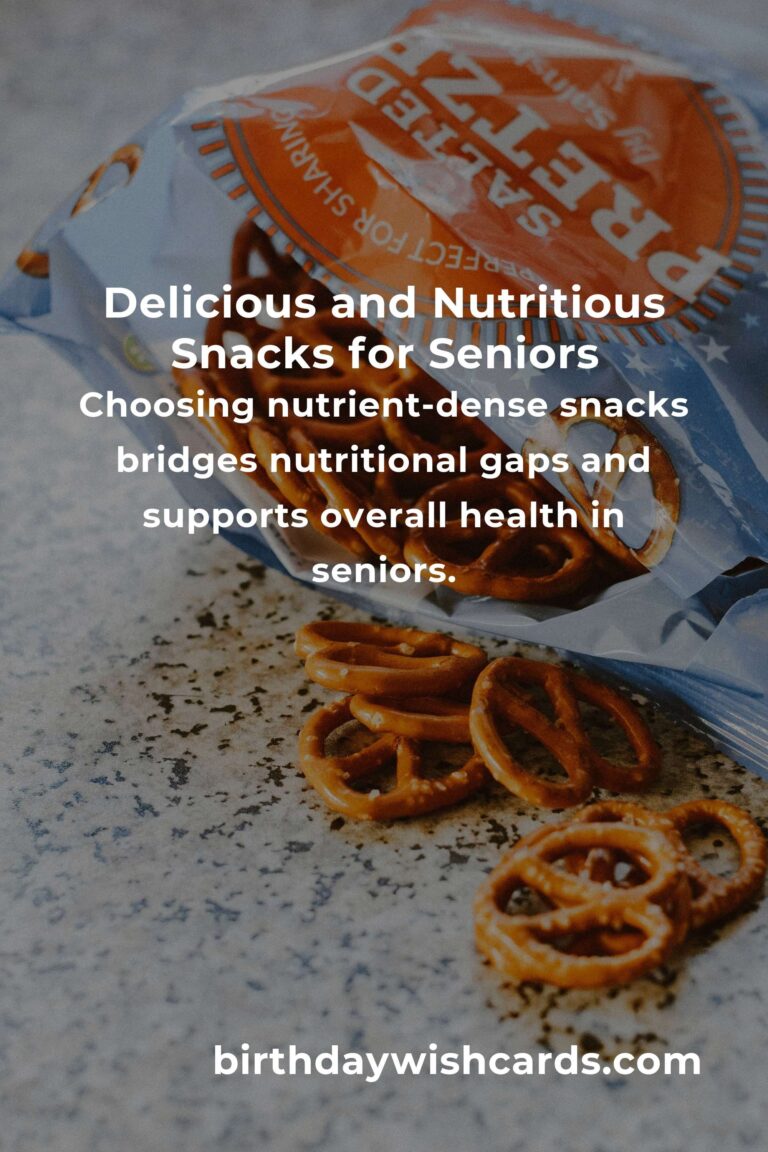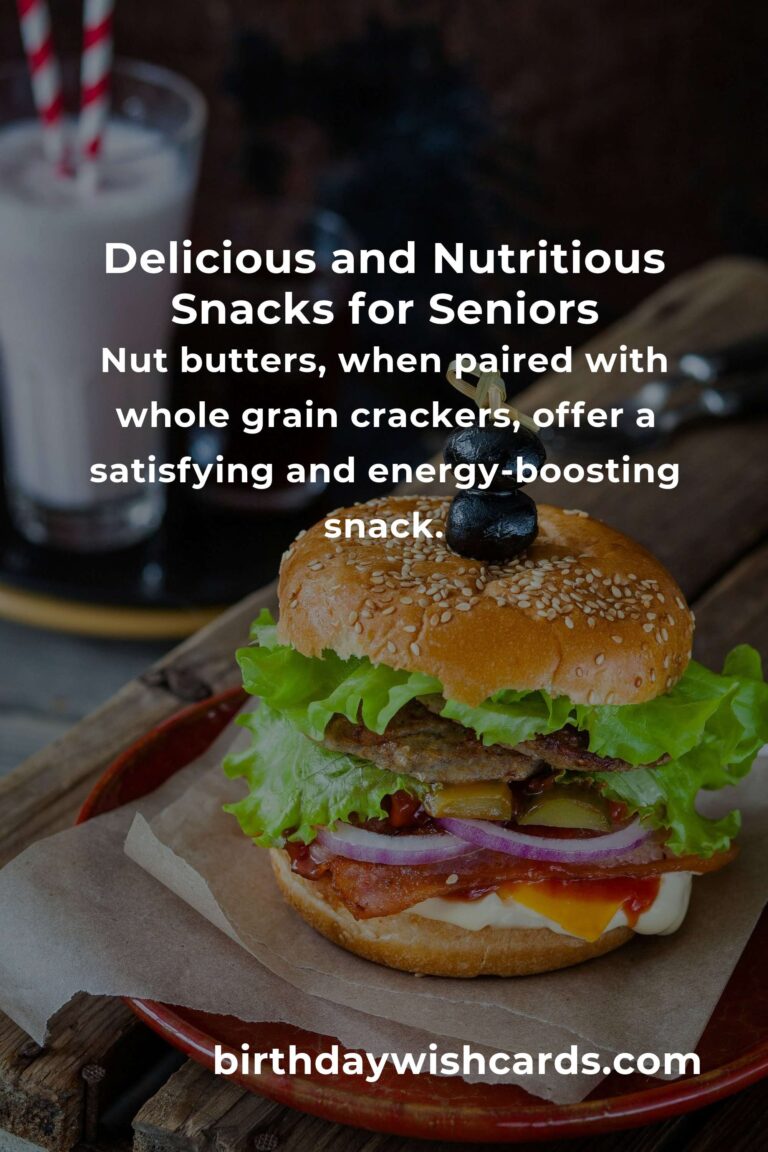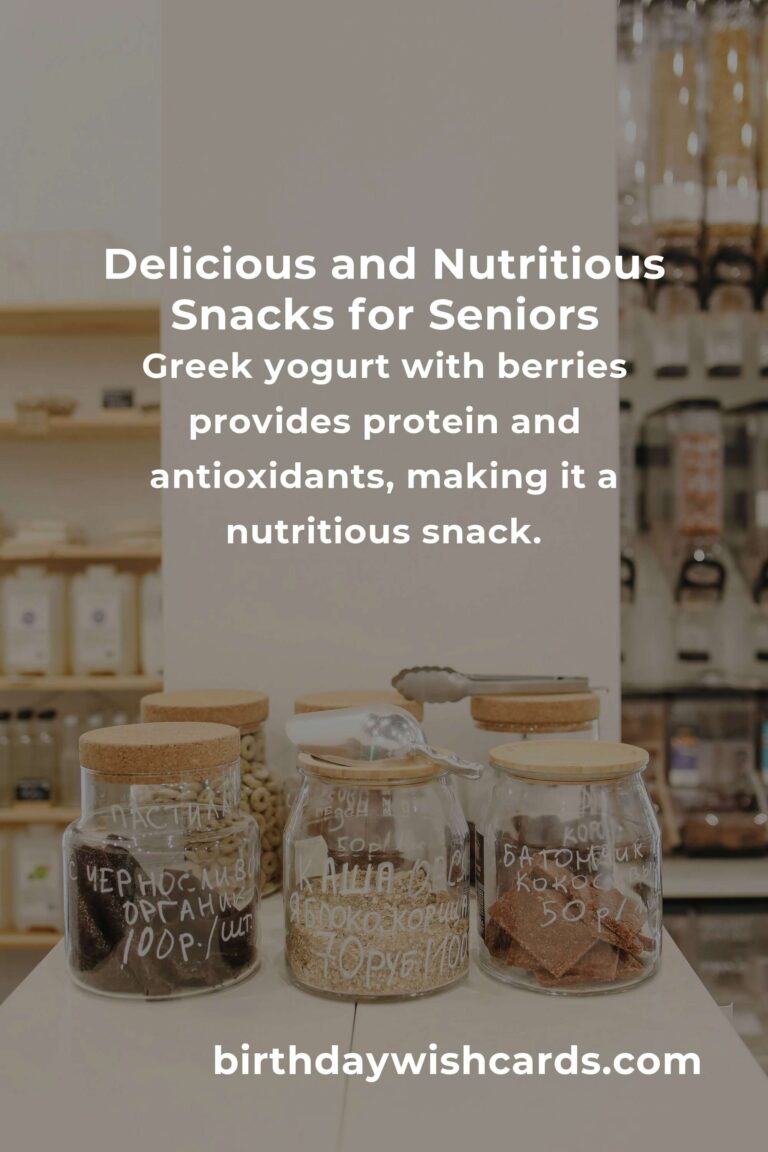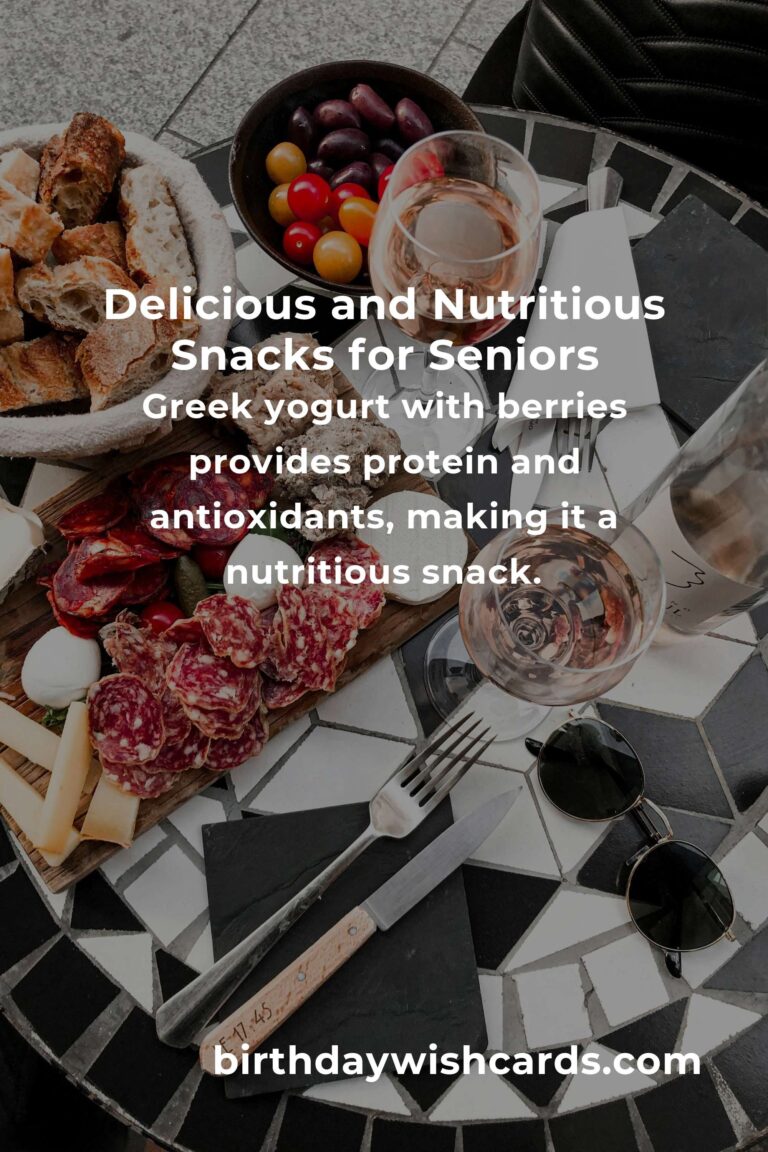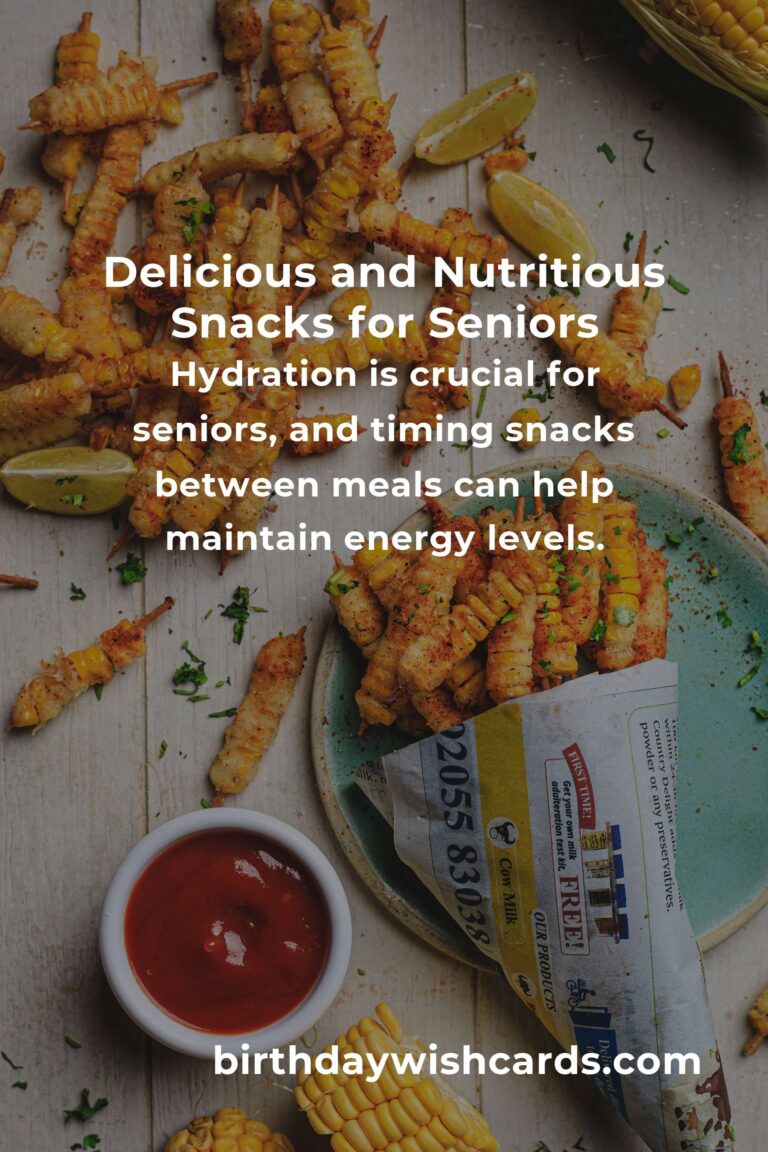
As we age, maintaining a balanced diet becomes increasingly important to sustain energy levels, support bodily functions, and promote overall health. For seniors, choosing healthy snacks is a vital part of their dietary routine, ensuring they receive essential nutrients to maintain vitality. In this comprehensive guide, we’ll explore the best healthy snacks for seniors, focusing on nutritional value, taste, and ease of preparation.
The Importance of Healthy Snacking for Seniors
Snacking can play a critical role in a senior’s diet, helping to manage hunger between meals, stabilize blood sugar levels, and provide an energy boost. Healthy snacks are particularly beneficial for seniors who may have reduced appetites or difficulty consuming large meals. Choosing nutrient-dense snacks can help bridge any nutritional gaps and support overall health and well-being.
Nutritional Considerations for Senior Snacks
When selecting snacks for seniors, it’s essential to consider their nutritional needs. Seniors require a balanced intake of macronutrients, such as proteins, healthy fats, and carbohydrates, along with essential vitamins and minerals. Fiber is crucial for digestive health, while calcium and vitamin D support bone health. Omega-3 fatty acids are known for their anti-inflammatory properties and can benefit heart health.
Top Healthy Snack Options for Seniors
1. Greek Yogurt with Berries
Greek yogurt is an excellent source of protein and probiotics, which support gut health. Adding fresh berries provides antioxidants and fiber, making it a delicious and nutritious snack.
2. Nut Butter and Whole Grain Crackers
Nut butters such as almond or peanut butter offer healthy fats and protein. Paired with whole grain crackers, they make a satisfying and energy-boosting snack.
3. Hummus and Vegetable Sticks
Rich in protein and fiber, hummus is a versatile snack that pairs well with a variety of vegetables like carrots, celery, and bell peppers, offering a crunchy and refreshing treat.
4. Cheese and Apple Slices
Cheese provides calcium and protein, while apples add fiber and a touch of natural sweetness. This combination is both satisfying and nutritious.
5. Mixed Nuts and Seeds
Nuts and seeds are packed with healthy fats, protein, and fiber. They are easy to store and make for a convenient on-the-go snack.
6. Avocado on Whole Grain Toast
Avocados are rich in healthy fats and vitamins. Spread on whole grain toast, they create a tasty and heart-healthy snack option.
Hydration and Snack Timing
In addition to choosing the right snacks, seniors should pay attention to hydration. Drinking water or herbal teas throughout the day can aid digestion and prevent dehydration. Timing snacks between meals can help maintain energy levels and prevent overeating during main meals.
Conclusion
Healthy snacking is an essential component of a senior’s diet, providing necessary nutrients and energy. By choosing snacks that are both nutritious and enjoyable, seniors can support their health and well-being effectively. Remember to consult with healthcare providers or nutritionists when making dietary changes to ensure they meet individual health needs.
Snacking plays a critical role in a senior’s diet, helping to manage hunger and stabilize blood sugar levels.
Choosing nutrient-dense snacks bridges nutritional gaps and supports overall health in seniors.
Greek yogurt with berries provides protein and antioxidants, making it a nutritious snack.
Nut butters, when paired with whole grain crackers, offer a satisfying and energy-boosting snack.
Hydration is crucial for seniors, and timing snacks between meals can help maintain energy levels.
#HealthySnacks #SeniorsHealth #Nutrition


